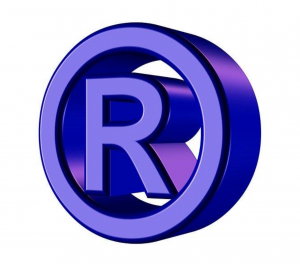In your excitement and rush to get things started, however, you should not forget about the legal aspects of starting a website. If you ignore them, they might come back to haunt you and could even force you to close your business.
When it comes to starting a website, most people are aware that there are some important things that they need to take care of.
Most of those starting a website will take into consideration things like their domain name, the best web hosting provider, their website logo, website color schemes, the kind of content that will go on their site, and so on.
There’s one critical thing, however, that gets overlooked by most people – the legal considerations of starting a website.
Overlooking the legal aspects of creating a website can potentially lead to lots of problems down the road.
Without properly protecting yourself, you might find yourself dealing with issues to do with copyright infringement, plagiarism, or even being held liable for losses resulting from your website getting hacked, thereby compromising user data.
To avoid this, you need to make sure that you’ve taken care of all the legal considerations that come with starting a website.
Below, let’s take a look at the key legal considerations that you should never ignore when setting up a website.
- Website Contract
Today, we have multiple web builders that have made it possible for just about anyone to build a website, even without any coding skills.
Even with the availability of these platforms, you might still decide to hire a web designer or developer to build your site, especially when you want a complex website with multiple functionalities.
If you decide to go down this route, it is very important to ensure that you have a contract with your web developer.
At the very minimum, your website contract should identify who the website will belong to, who has the rights to the website source code, the scope of work to be done, who will work on your site’s search engine optimization (SEO), and who will be in charge of site maintenance.
Having a clear website contract will save you from lots of headache down the road. Without the website, you might even discover that you do not own your website, despite having paid the developer to build it for you.
- Domain Name Registration
Before your website can go live on the internet, you will need to come up with a domain name and register it. If you have hired a developer to build the website for you, there’s a chance that they might register the domain in their name, instead of your name.
If the domain is registered under their name, this means that they legally own the domain, and any trademark rights attached to the domain. If they were to take the domain name and use it for other purposes, you’d have no legal recourse, since the domain name legally belongs to them.
To avoid this, make sure that your web developer has registered your chosen domain under your name. If they had already registered it in their name, have them transfer the domain to you.
- Copyright and Trademark Infringement
Whether you’ve outsourced building your website to a web developer or are doing it yourself, you need to be very careful not to infringe on the copyrights, trademarks and intellectual property rights of others. Copyright and trademark infringement can lead to huge fines for you and your business.

To avoid infringing on the trademark rights of others, make sure that any elements that may be used to identify your website are developed from scratch. This includes website logos, artworks, slogans, names for your products and services, and other aspects of your website’s brand identity.
If you’re working with an independent web designer or developer, you should require that they indemnify you in case it is discovered that any of the artworks they used on your site infringes on the trademark rights of others.
In addition, you should make sure that any content that goes on your website, including any images and written content, have been developed by your team from scratch. Never allow any material to be used on your website unless you’re absolutely certain that the author of the material has authorized free use and distribution of the material.
It’s good to note that, sometimes, it is possible to infringe on the intellectual property rights of others through your link building.
For instance, if you link to another person’s work and claim that it is your work, you might be liable for copyright infringement. Therefore, you should also avoid making any claims that might insinuate ownership of other people’s content, even if it is not on your site.
- Privacy Policy
If your website is going to collect any information from your users or visitors, it is a legal requirement for your website to have a privacy policy describing how you collect and handle user data.
A good privacy policy will usually contain five key sections. The first section of the privacy policy should give a description of all the personal information that your website will collect from people who visit or use the site.
This includes information like name, date of birth, email address, phone number, credit card information, mailing address, and so on.
The second section of the privacy policy explains why you are collecting this information and how you’re going to use the information. The aim here is to make sure that your visitors and users clearly understand why they’re giving you this information.
In this section, you’ll also make it clear whether the information provided by your visitors will be shared with third parties.
The third section should outline how you are going to store the data you’ve collected from your visitors, as well as any security measures that have in place to protect this information. This is very important, considering how rampant cybersecurity threats have become.
The fourth section should advise your visitors about their rights to their personal data, including the right to rectify any errors in the data they initially provided, as well as the right to have their data deleted.
The final section should describe the process through which changes to the privacy policy will be communicated to users and visitors, as well as the effective date of your privacy policy.
Aside from being a legal requirement, having a privacy policy on your website also helps build trust among your visitors. It shows that you care about transparency and are committed to keeping their personal information safe.
- Terms Of Service
While it is not a legal requirement to have a terms of service page on your website, having one helps protect and indemnify you from liabilities arising from your visitors’ use of your website.
The terms of use document describes the terms that govern the use of your website. It should begin by stating that anyone who uses your website agrees to be bound by the terms stated within the document.
Some of the things you might want to include in your terms of service page include:
- The activities that users are permitted to or not to carry out on your website
- Disclaimer limiting you from any liability arising from errors within your content
- Disclaimer limiting you from any liability arising from user created content
- Details about the use of cookies on your website
- Your rights and ownership of the site and its content
- Ecommerce Rules
If your site will be involved in ecommerce, you will need to make yourself acquainted with the rules that govern the sale of goods and services over the internet. This will help you keep your website in compliance with these rules.
Some of the rules your website will need to adhere to if it is involved in ecommerce include:
- Your website should have clearly visible contact details that your customers can use to get in touch with you
- Your website should have a clearly visible cancellation or refund policy at the point of purchase
- Data being transferred between your visitors’ device and your site must be encrypted with HTTPS
- Your website should be PCI compliant
- The prices of your products or services should be clearly stated, including whether they are inclusive of tax or not
- CAN-SPAM Act
If you are going to be involved in email marketing, you will also need to ensure that you are compliant with the CAN-SPAM Act of 2003. This is an act that describes the acceptable conditions for sending out unsolicited emails.
According to the CAN-SPAM Act, you should:
- Avoid using false or misleading sender information. Your sender address should be able to accurately identify the actual person or business that sent the email.
- Avoid using email subject lines that are deceptive or misleading
- Provide a valid physical address for your business or organization
- Give your recipients a clearly visible option for opting out from your emails. Any opt-out request from your recipients should be promptly honored.
- Make it clear that your email is an ad or a promotional message
Failure to comply with the CAN-SPAM act can lead to huge fines and penalties for your business. In addition, it can also lead to your email address getting blacklisted by email providers, automatically sending you to the spam folder. This can completely frustrate your email marketing efforts.
Wrapping Up
If you are setting up an online store, starting a blog, or any other kind of online business, you are probably excited about setting up your website and seeing the actual online real estate where your business will live.
In your excitement and rush to get things started, however, you should not forget about the legal aspects of starting a website. If you ignore them, they might come back to haunt you and could even force you to close your business.
In this article, we have given you a breakdown of the critical legal considerations that you need to keep in mind when starting a website. Take care of this and you’ll save yourself time and money down the line.


Join the conversation!